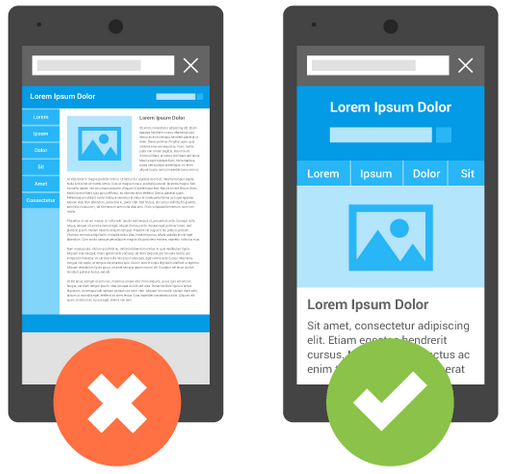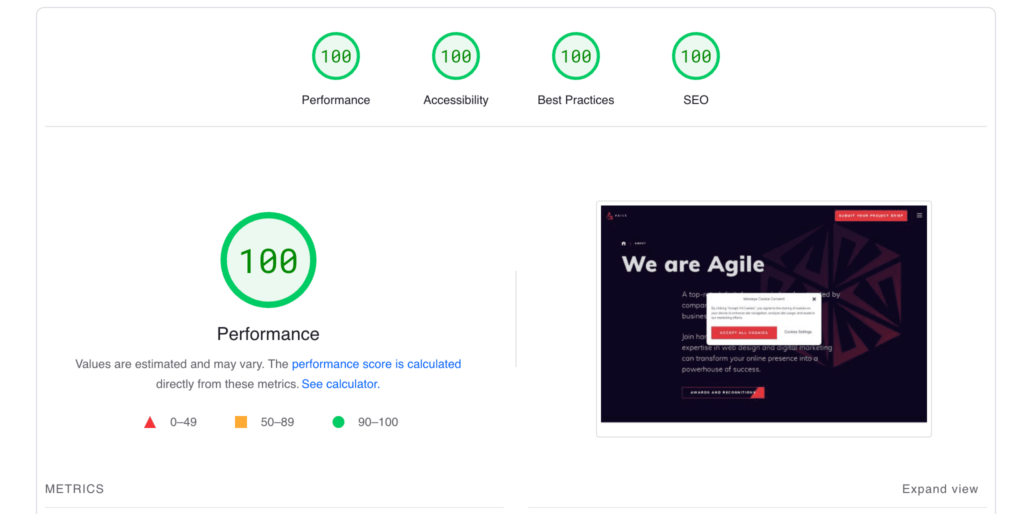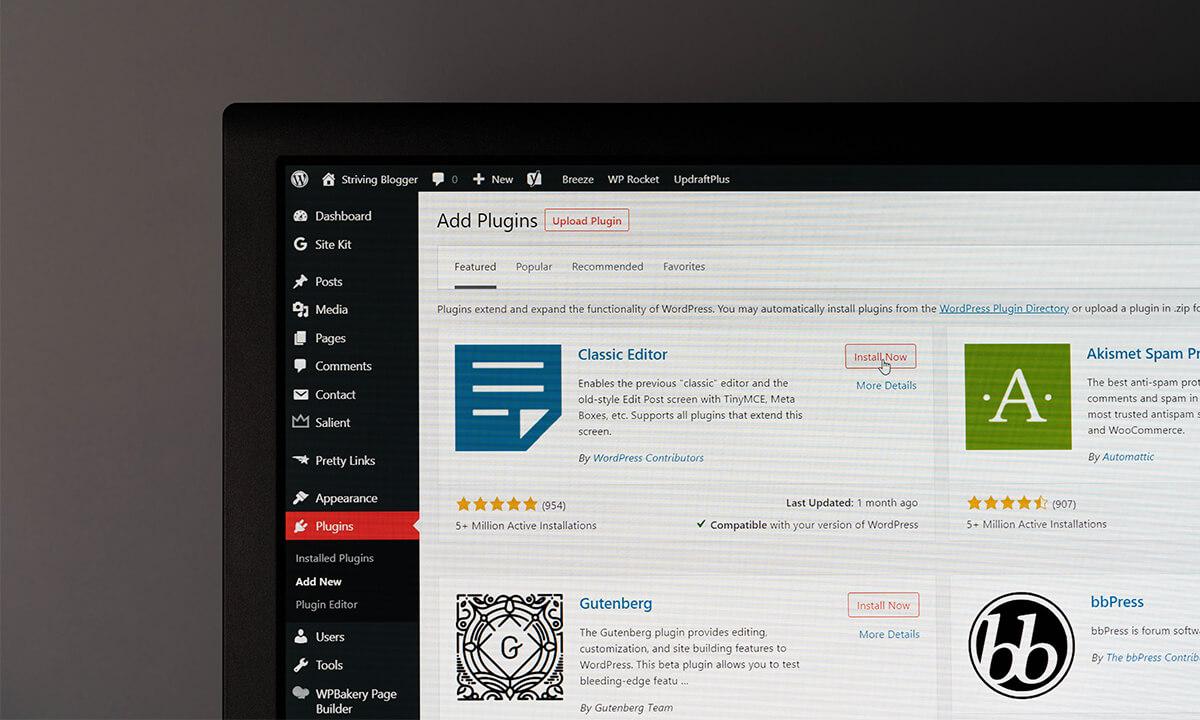10 Common SEO Mistakes Professional Services Make (And How to Avoid Them)
The professional services industry—spanning law, finance, consulting, and healthcare—relies heavily on strong online visibility to attract and retain clients. However, common SEO mistakes can undermine these efforts and hinder business growth.
Below are 10 SEO mistakes small business owners make when doing Search Engine Optimisation, along with practical tips on how to avoid them.

In this article:
1. Keyword Stuffing

Keyword stuffing is akin to cramming too many details into a legal brief; it seems thorough but confuses and overwhelms.
Overloading content with keywords to manipulate search rankings can backfire as search engines are adept at recognising this tactic. Instead of boosting rankings, it may cause your site to drop in search results.
Why It Matters:
Search engines aim to deliver the most relevant and high-quality content to users. According to Google, pages that attempt to manipulate search rankings through excessive keyword use may be penalised, leading to reduced visibility.
How to Fix Keyword Stuffing:
- Manual Review: Identify areas where keywords appear unnatural or disrupt readability.
- Target Long-Tail Keywords: Use long-tail keywords that naturally integrate with the content. For example, instead of just “law firm,” use “family law firm in London.”
- SEO Tools: Tools like RankMath or SEMrush can help analyse keyword density and recommend improvements.
- Content Flow: Read your content aloud to check for awkward phrasing. The text should feel conversational and provide genuine value to the reader.
Pro Tip: Aim for a keyword density of less than 2%, focusing more on quality content than repetitive keyword use.
Related: Effective Keyword Research for SEO
2. Duplicate Content

In professional services, duplicate content is like giving the same advice to every client—redundant and uninspiring. Search engines prefer unique content that adds value to users, and duplicate pages can dilute your authority.
The Impact of Duplicate Content:
- Duplicate content confuses search engines about which page is the most relevant.
- It can lead to lower rankings or even be removed from search results altogether.
How to Detect and Resolve Duplicate Content:
- Use Tools like Screaming Frog: Identify exact or near-duplicate content.
- Canonical Tags: Indicate the original content with canonical tags to avoid duplication issues.
- Merge Similar Content: Combine content covering similar topics to create comprehensive guides or resource pages.
Example: A law firm with multiple pages discussing “family law services” could combine these into a single, detailed page covering all aspects of family law.
3. Thin Content

Thin content is akin to vague advice—it leaves clients unsatisfied and questioning your expertise. In professional services, search engines prefer pages that fully answer a user’s search intent.
Why Thin Content is Detrimental:
- It fails to engage users and may lead to high bounce rates.
- Google’s algorithms favour pages that provide in-depth, valuable information.
Steps to Avoid Thin Content:
- Aim for Content Depth: Write articles of at least 1,000–1,500 words on complex topics.
- Answer User Intent: Consider what questions your audience might have and ensure your content addresses them.
- Use Multimedia: Include videos, infographics, or case studies to enrich the content and improve user engagement.
Example: A consultancy firm could develop in-depth case studies detailing successful project outcomes, providing real-world insights and value to potential clients.
4. Ignoring Title Tags and Meta Descriptions

In professional services, meta titles and descriptions are like case brief summaries; they provide a concise yet informative overview. Properly optimised title tags and meta descriptions help search engines understand a page’s content and improve click-through rates (CTR).
Tips for Crafting Effective Metadata:
- Compelling Language: Craft engaging meta descriptions that encourage users to click through. For example, “Learn how our London law firm increased client satisfaction by 30% in six months.”
- Stay Within Character Limits: Title tags should be under 60 characters, while meta descriptions should be around 150–160 characters.
- Include Keywords: Use relevant keywords naturally, focusing on user intent.
Read also: How to Optimise Metadata for Effective SEO and User Engagement
5. Low Quality Content

Low-quality content is akin to offering subpar services. It disappoints and drives clients away. Search engines value high-quality, informative, and engaging content that provides real value to users.
Best Practices for High-Quality Content:
- Understand Your Audience: Create content that addresses common questions or concerns. Tools like AnswerThePublic can help identify these.
- Leverage Industry Expertise: Showcase your firm’s expertise by sharing thought leadership articles, whitepapers, or blog posts on industry trends.
- Use Data-Backed Insights: Incorporate statistics, case studies, or research findings to support your claims.
Stat to Consider: HubSpot found that companies that blog regularly receive 55% more website visitors.
6. Neglecting Mobile Optimisation

Neglecting mobile optimisation is like using outdated office equipment. With mobile devices accounting for over 50% of global web traffic, a mobile-friendly website is crucial.
Key Mobile Optimisation Practices:
- Responsive Design: Ensure your site adapts seamlessly across all screen sizes.
- Speed Improvements: Optimise images and minimise scripts to reduce load times.
- Tap Targets: Make buttons large enough to tap easily on mobile devices.
Read also: Improve your mobile SEO results
7. Broken Links and Redirects

Broken links and incorrect redirects are like sending clients to the wrong address—it causes frustration and can lead them to seek services elsewhere.
How to Manage Links:
- Regularly Audit Links: Use tools like Ahrefs or SEMrush to find and fix broken links.
- Set Up 301 Redirects: Properly redirect any removed pages to maintain link equity.
- Avoid 302 Redirects: Use 301 redirects for permanent changes, as 302 redirects don’t pass link equity.
Read also: Google Search Console Errors: What to Do When You Find Them
8. Image Optimisation Issues

Ignoring image optimisation is like submitting a poorly formatted report—it undermines your professionalism.
Optimisation Techniques:
- Compress Images: Use tools like TinyPNG to reduce image file sizes.
- Add Alt Text: Describe images clearly for both search engines and visually impaired users.
- Use Appropriate Formats: Consider newer formats like WebP for faster loading times.
Stat: A one-second delay in page load can reduce conversions by 7%.
9. Missing Out on Local SEO

For professional services targeting local clientele, local SEO is essential. According to Google, “near me” searches have increased by over 200% in the past few years.
Local SEO Strategies:
- Google My Business (GMB): Keep your GMB profile updated with accurate information.
- Local Citations: Build consistent listings in directories like Yelp and Yellow Pages.
- Location-Specific Content: Write blog posts about local events or community involvement.
Related: Local SEO Mistakes to Avoid for Service Area Businesses
10. Buying Links

Buying links is like buying testimonials—it may provide a short-term boost, but it can harm your credibility and result in penalties.
Alternatives to Buying Links:
- Guest Blogging: Write guest articles for reputable sites.
- Create Shareable Content: Develop high-quality infographics, reports, or videos that others may want to link to.
Related: Should I Buy Google Reviews for My Business?
How Agile can help
In digital marketing, an agile SEO approach is vital for online visibility. Here’s how we can support you:
- Flexibility and Adaptability
Agile methodologies allow for quick adjustments based on real-time data and analytics. This means we can swiftly respond to changes in search engine algorithms or shifts in market trends, ensuring your SEO strategy remains effective. - Continuous Improvement
By implementing iterative processes, we focus on continuous testing and optimisation of your SEO strategies. This ensures that we are always improving your website’s performance and adapting to new insights. - Collaborative Approach
Our agile teams work closely with you to understand your unique needs and goals. This collaboration fosters transparency and ensures that your input is valued throughout the SEO process. - Faster Results
Agile practices enable us to deliver results more quickly. Instead of waiting for long cycles, we implement changes and measure their impact in shorter timeframes, helping you see progress sooner. - Data-Driven Decisions
We leverage Google Analytics and performance metrics to inform our strategies. This data-driven approach helps us make informed decisions that align with your business objectives, maximising your ROI.
By choosing our professional SEO services, you can rest assured that you are making a strategic investment in your online presence. We are committed to helping you navigate the complexities of SEO and achieve sustainable growth in your digital marketing efforts.

Our commitment to excellence is underscored by our recognition as a Top SEO Company in the United Kingdom for Business Services.
Agile is an independent Digital Marketing Agency headquartered in London, specialising in web design and search engine optimisation. Our proficiency is underscored by several HubSpot Certifications, and we take pride in being recognised as a 2023 Global Award Winner for SEO by Clutch. At the heart of our success lies a team that seamlessly navigates the intersection of technology and marketing, ensuring innovative and impactful solutions for our clients.
Related
Articles


